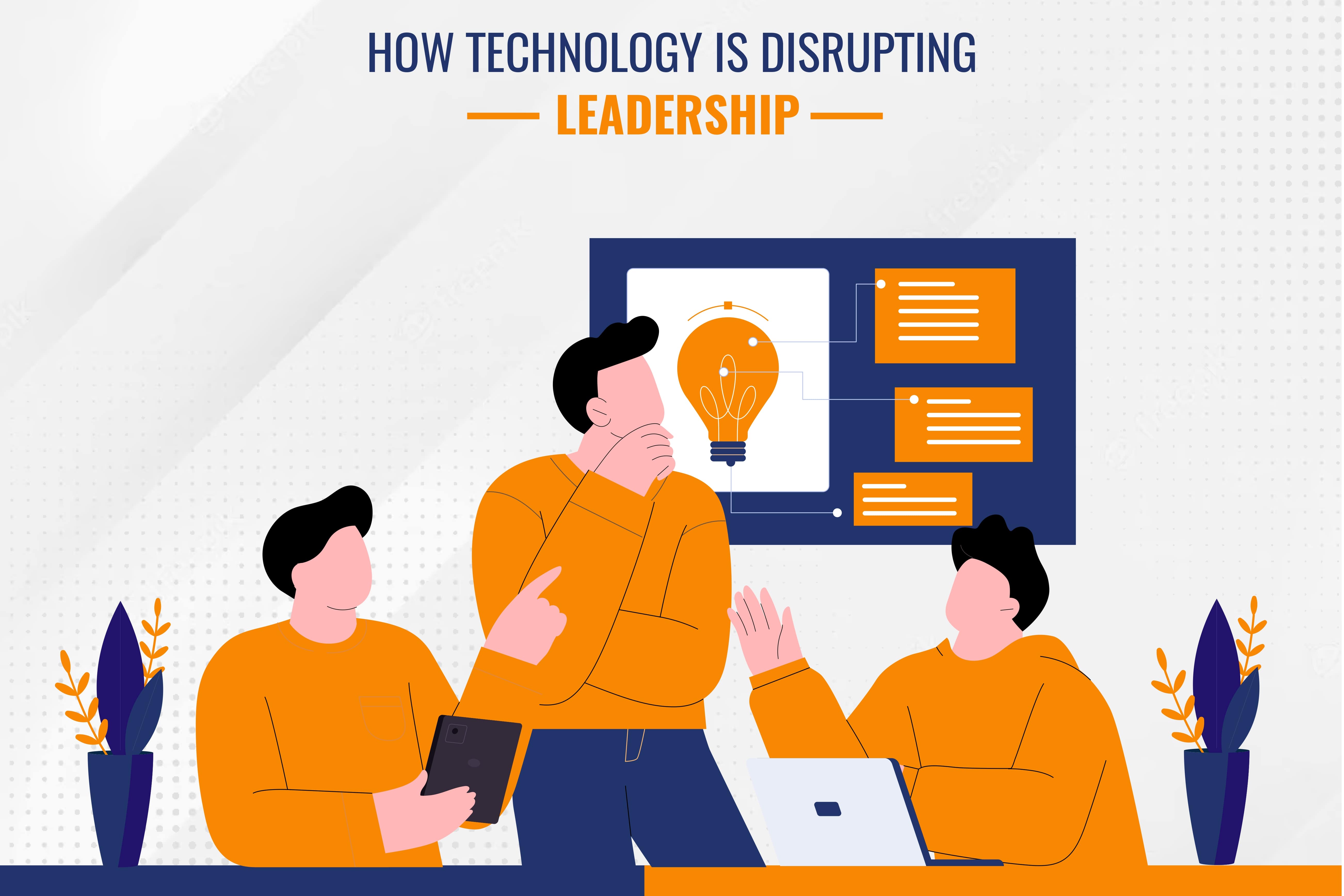
How Technology Is Disrupting Leadership?
The world is undergoing a rapid transformation, and technology lies at the heart of this revolution. The impact of technology is felt across various sectors, but one area that has seen significant disruption is leadership. Traditionally, leadership was associated with hierarchy, authority, and charisma. However, in the digital age, these traditional notions of leadership are being challenged as technology reshapes the way organizations operate, communicate, and make decisions. So let’s embark together to explore how technology is disrupting leadership, reshaping leadership styles, and demanding new skills from leaders.
Technology Disruption On Leadership
Digital Communication and Remote Work
One of the most profound ways technology is disrupting leadership is through digital communication and remote work. The advent of the internet, email, and video conferencing tools has made it possible for teams to collaborate across geographical boundaries. This has led to the rise of remote work and virtual teams, which require a different leadership approach.
Leaders must now manage teams that they may never meet in person, and this requires a shift from traditional top-down leadership to a more collaborative and trust-based approach. Effective leaders in this context are those who can communicate clearly through digital channels, build strong virtual relationships, and foster a sense of belonging and purpose among remote team members.
Data-Driven Decision Making
Technology has also given leaders access to unprecedented amounts of data. Big data analytics, machine learning, and artificial intelligence (AI) are tools that can help leaders make more informed decisions. Instead of relying solely on gut instinct or past experience, leaders can now use data to guide their choices.
This shift towards data-driven decision-making requires leaders to develop a new set of skills with the right Leadership And Management Skills Development, including the ability to interpret data, understand statistical concepts, and work with data scientists and analysts. Leaders who can harness the power of data are better equipped to navigate complex and rapidly changing business environments.
Flattened Hierarchies
In the past, leadership was often associated with a hierarchical structure, where decisions flowed from the top down. However, technology has disrupted this traditional model by enabling more decentralized and flat organizations. Collaboration tools, social media, and open-source platforms have allowed employees to connect and collaborate across departments and levels.
Leadership in these flattened hierarchies is less about commanding and controlling and more about facilitating and empowering. Leaders must create an environment where employees feel empowered to contribute their ideas and take ownership of their work. This requires a shift towards servant leadership, where leaders serve their teams by removing obstacles and providing necessary Leadership Training and Development as well as much-needed support.
AI and Automation
The rise of artificial intelligence and automation is another significant disruption to leadership. These technologies have the potential to automate routine tasks, freeing up human workers to focus on more creative and strategic endeavors. While this can lead to increased efficiency, it also raises questions about the role of leadership in a world where machines are performing many tasks previously done by humans.
Leaders must navigate the ethical implications of automation, such as job displacement, and make decisions about how to integrate AI into their organizations. Additionally, they need to develop the skills to work alongside AI systems with the help of proper Leadership Skills Development Training initiatives and leverage their capabilities to drive innovation and growth.
Digital Transformation
Digital transformation is the process of integrating digital technology into all aspects of an organization. It involves reimagining business processes, customer experiences, and even business models. Leaders play a crucial role in driving digital transformation initiatives, as they must champion change, align the organization's strategy with digital goals, and ensure that employees have the necessary digital skills.
Leaders who can successfully lead digital transformation efforts are in high demand. They need to be visionary, adaptable, and capable of inspiring their teams to embrace change. This disruption is not just about technology; it's about fundamentally rethinking how business is done.
The Challenge of Cybersecurity
As organizations become increasingly reliant on technology, the threat of cybersecurity breaches looms large. Leaders must not only understand the importance of cybersecurity but also take an active role in protecting their organizations from cyber threats. This involves setting a cybersecurity strategy, educating employees about security best practices, getting more technical and Leadership Skills Development Training onboard, and staying up-to-date with the evolving threat landscape.
Leaders who fail to address cybersecurity concerns put their organizations at risk of data breaches, financial losses, and damage to their reputations. Therefore, cybersecurity has become an integral part of modern leadership responsibilities.
Wrapping Up
Technology is reshaping leadership in profound ways, challenging traditional notions of authority and hierarchy. The digital age demands a new breed of leaders who can effectively navigate the complexities of remote work, data-driven decision-making, flattened hierarchies, AI and automation, digital transformation, and cybersecurity. These disruptions are not just challenges but also opportunities for leaders to evolve and thrive in a rapidly changing world.
To be effective leaders in the age of technology, individuals must continuously update their skills through Leadership And Management Skills Development, embrace change, and foster a culture of innovation and adaptability within their organizations. While the landscape of leadership may be shifting, the fundamental qualities of a good leader—such as vision, empathy, and the ability to inspire—remain as relevant as ever. Leaders who can harness the power of technology while staying true to these core values will be well-equipped to lead their organizations into a bright and promising future.
